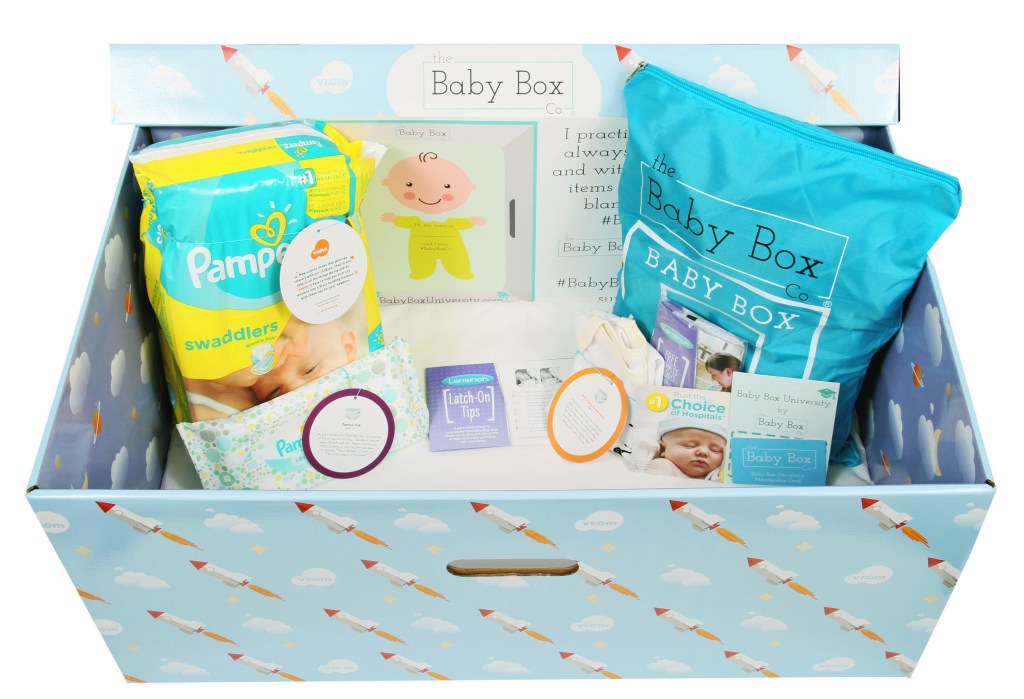Safe place for sleeping baby: State offering expectant parents baby boxes
Published 6:45 am Thursday, March 30, 2017

- An example of a Baby Box that Alabama parents in waiting will receive when they take part in the state's Baby Box program.
It’s fair to say that expectant mothers appreciate anything that will help with a baby. Especially if it’s free and educational.
That’s why a new program in the state has some parents paying attention.
The program — Baby Box University — is a globally integrated initiative that hopes to improve family health care outcomes in the state and reduce sudden infant death syndrome (SIDS) by offering a universal safe sleep program.
Gov. Robert Bentley and Baby Box Co., the company behind Baby Box University, announced Wednesday a statewide program that allows all expectant and new parents the opportunity to receive a free Baby Box by completing online parenting education.
Other partners include the Alabama Rural Development Office and the Alabama Department of Public Health.
The baby boxes, which are made from a durable cardboard and include a firm mattress and fitted sheet, can be used as a baby’s bed for the first months of life. The boxes also include newborn essentials such as Pampers Swaddlers diapers, Pampers baby wipes, Vroom activity cards form the Bezos Family Foundation, Lansinoh breast pads and nipple cream for breastfeeding mothers, a onesie (jumpsuit), waterproof tote bag and more.
The program expects to distribute up to 60,000 baby boxes in 2017 in an effort to ensure every expectant family in the state has access to the free resource regardless of socioeconomic background.
State’s infant mortality rate
In 2015 there were 8.3 deaths per 1,000 births, according to the Alabama Department of Public Health.
Although this places the state above average on a national scale, there is a large discrepancy between the health care outcomes of African-American and caucasian babies, the Alabama Department of Public Health said.
Approximately one-third of the 59,651 babies born in Alabama last year were born to African-American mothers, with the infant mortality rate for African-American babies at 13.9 per 1,000 live births, according to state numbers. The rate was 6.0 for caucasians.
“The Baby Box program is essential to establishing a strong understanding of proper infant care during their most vulnerable time in life,” Bentley said in a press release. “This statewide program encourages new and expecting parents, of all socioeconomic backgrounds, to take advantage of this free educational program, which can be the difference between life and death. We ultimately want to reduce the infant mortality rate in Alabama and assist families in raising happy, healthy babies.”
The educational component of the baby boxes is at the center of the Baby Box University distribution model. Families are required to view their community’s online curriculum related to prenatal health, breastfeeding, safe sleep practices and newborn care before receiving the box.
The Baby Box University program pays its homage to a Finnish tradition. The use of baby boxes has been credited with helping Finland achieve one of the world’s lowest infant mortality rates.
The initiative, which enables every pregnant woman in the country to claim a free Baby Box once she receives prenatal care and parenting information from health care professionals, is credited with helping decrease Finland’s infant mortality rate from 65 deaths for 1,000 children born in 1938 to 1.3 deaths per 1,000 births in 2013, according to the World Health Organization.
“We are excited to be one of the first states to offer this program statewide to provide families with the tools and education to give their babies a healthy start in life,” said Ron Sparks, director of the Alabama Rural Development Office. “The ultimate goal of the program is to save babies’ lives.”
Athens resident Ashley Penley, who is expecting her second child this fall, said she plans to take part in the Baby Box program. “I think the program is a good way to educate mothers, especially young mothers, that do not know much about preventing SIDS.”
She believes the Baby Box program is great for Alabama. “The program could possibly prevent the risk of accidents that could happen while an infant is sleeping,” she said.
Jennifer Clary, CEO of The Baby Box Co. said she is proud to share the program with expectant and new parents in Alabama. “Every parent has a right to the necessary tools to care for their infant and every child deserves a safe and supported start in life,” she said. “Alabama’s leadership is demonstrating a commitment to making basic child care resources and education universally accessible to families statewide. It’s an honor to help them realize this incredible vision.”
Alabama State Health Officer Dr. Tom Miller said he applauds the agencies that made the Baby Box initiative a reality. “There is much work to be done to address the ongoing challenge of infant mortality here in the state,” he said. “This initiative will assist in addressing the challenge by providing education to parents from medical providers that practice within our state.”
How to get the free Baby Box
It takes only three step for Alabama’s expecting and new parents to get their Baby Box:
• First, register for free online at babyboxuniversity.com as an Alabama resident. Be sure to include correct information, including mailing address.
• Second, watch the 10-15-minute Alabama syllabus at babyboxuniversity.com. After taking a short quiz, residents will receive a certificate of completion and be able to select local pickup or direct delivery of the Baby Box.
• Third, those who selected direct delivery will receive the Baby Box at the address provided when registering with Baby Box University. Those who selected local pickup, should bring the Baby Box University certificate to Nurturing Moment at 7540 Memorial Parkway, SW, Suite H, Huntsville.


